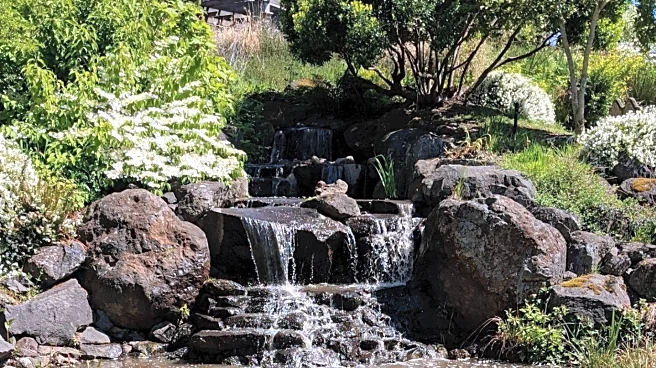What's Happening?
The California Botanic Garden is organizing a Seeds Walking Tour on September 26 and 27, offering guided tours through the state's largest botanic garden dedicated to California native plants. The event aims to educate participants about the significance of seeds in understanding native plant species. The tours are scheduled from 8:30 to 9:30 a.m. and 10 to 11 a.m. on both days, with registration required. The tour fee is $20, with a discounted rate of $10 for members. This initiative is part of a broader effort to promote awareness and appreciation of native flora in Southern California.
Why It's Important?
The Seeds Walking Tour is significant as it fosters a deeper understanding of native plant species, which are crucial for maintaining biodiversity and ecological balance. By educating the public on the importance of seeds and native plants, the event supports conservation efforts and encourages sustainable gardening practices. Participants gain insights into the ecological roles of native plants, which can lead to increased support for conservation initiatives. This knowledge is vital for preserving California's unique plant heritage and promoting environmental stewardship.
What's Next?
Following the Seeds Walking Tour, participants may be inspired to incorporate native plants into their own gardens, contributing to local biodiversity. The California Botanic Garden may continue to offer similar educational events, expanding their reach and impact. Increased public interest in native plants could lead to more community-driven conservation projects and collaborations with local environmental organizations. The garden's efforts may also influence policy discussions on native plant conservation and sustainable landscaping practices.
Beyond the Headlines
The emphasis on native plants highlights broader environmental and cultural implications, such as the role of indigenous knowledge in plant conservation. The event may encourage participants to explore the cultural significance of native plants and their uses in traditional practices. Additionally, the focus on seeds underscores the importance of genetic diversity in plant populations, which is crucial for resilience against climate change and habitat loss.









